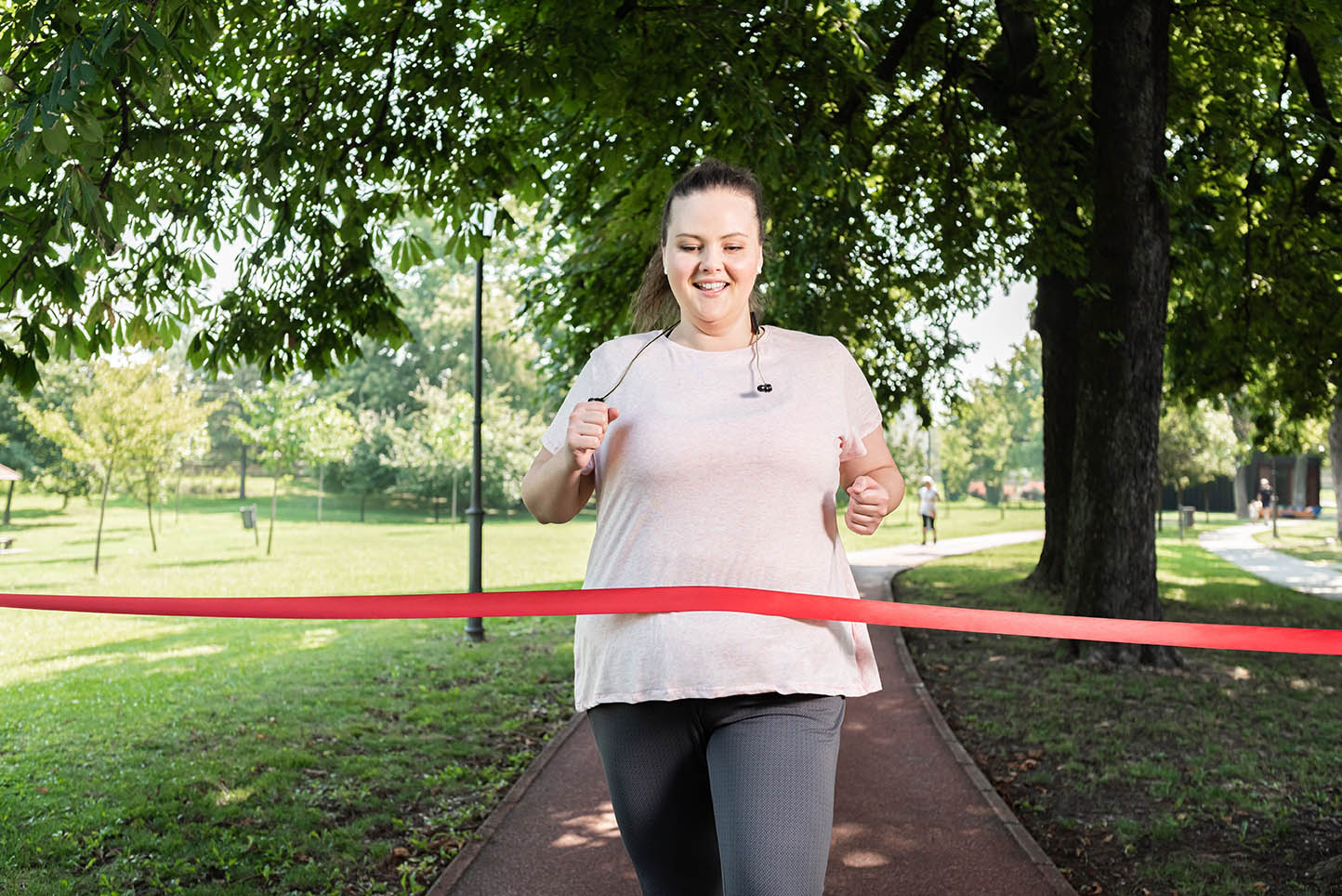Setting Realistic Goals that are Attainable and Keep You Motivated in 2025
January 8, 2025 Setting realistic goals and tracking your weight loss journey are powerful tools that help contribute to meaningful and lasting weight loss. However, many people set goals that are far too vague or unrealistic which ends up having the opposite effect and becomes discouraging. Research supports goal setting as an effective way to achieve success.
Setting realistic goals and tracking your weight loss journey are powerful tools that help contribute to meaningful and lasting weight loss. However, many people set goals that are far too vague or unrealistic which ends up having the opposite effect and becomes discouraging. Research supports goal setting as an effective way to achieve success.
Choose behavior focused personalized goals – These should be rooted in your day to day life and reflect something that will improve your wellbeing and health. Example: replacing a sugary snack with a piece of fruit or switching from soda/juice to water or a sugar free drink. These are simple things you do every day that you can start focusing on changing, that will lead to improved health.
Identify your reason WHY. What is meaningful to you – why do you want to change? What is driving you to change? Research shows people that are motivated by their health and fitness – rather than by appearance or a certain number on the scale – were more likely to keep up with their weight loss efforts over time. Maybe you’d like to get off or reduce the number of medications you take, or you are sick of having no energy and getting winded going up a flight of stairs. Reflect on your WHY on those days that you are needing some motivation.
Start SMALL. This helps you see that you are making progress, which motivates you to continue and want to achieve more goals. Getting that rewarding feeling when you have accomplished something is key to staying motivated. If the goal is too restrictive or extreme – you are not going to be able to continue doing it for long and will quit and feel like a failure. Every step is a step in the right direction, no matter how small.
Be SPECIFIC. Instead of saying “I want to exercise more” which is too vague, make your goal specific and measurable. Examples: “I will walk for 20 minutes 3 days a week.” Instead of “I will eat healthier”, make your goal “I will have a vegetable at dinner every night.” That is more specific and measurable and gives you a starting point to work on.
Set short-term AND long-term goals. If you only set your goal as “Lose 100 pounds” it’s going to seem daunting and far out of reach. This is okay for a long-term goal, but in order to reach that long-term goal, you also need to set short-term goals to focus on. Example: set a monthly goal of losing 4 pounds instead. That is a lot more manageable mentally to think about trying to lose 4 pounds. Once you achieve that goal, celebrate your success, and then on to the next 4 pounds until you hit that 100 pounds down!
Be REALISTIC. Not many people exercise every single day, so it is unrealistic that this is a goal that you could reach, especially if you are not currently exercising at all or if you have an extremely busy schedule. If you choose this as your goal, you are setting yourself up for failure and disappointment. You may last a week or two and then either get injured or get burnt out and give up. Think about where you are starting from, you can’t go from 0 to 100. A more realistic goal would be to start exercising 2 times a week. Once you have successfully done that for a month, then you could consider increasing it to 3 times a week, or adding more time to your workout, and so on.
What are the BARRIERS? If you can plan for and anticipate things that may derail you, it’s less likely you will be caught by surprise and get thrown off track. Make a list of a few things that have caused you to get thrown off track in the past, or things that may happen in the future and come up with a plan to work around it and still stay on track. An example of a barrier may be a change in you/your spouse’s work schedule or the kids schedules like summer break. How are you going to adapt and continue fitting in your healthy habits with this change in the household routine?
TRACK your Progress. Use a journal, a monthly planner, or an app on your phone to have a way to measure your progress and see if you are trending in the right direction. Take progress photos along the way so you can have a visual side by side comparison to notice changes in your body composition.
There is a difference between motivation and discipline:
Motivation is that feeling of enthusiasm that drives people to work hard to achieve goals. It is an internal process that can energize and direct behavior towards positive change. However, motivation can come and go and depends on external factors like your emotional state and stress. You can’t always rely on feeling motivated to get things done.
Discipline is the ability to keep working at something even when it’s difficult or you’re tired and don’t “feel” like it. Think of discipline like a muscle that has to be “worked” in order to get strengthened. It takes time to become disciplined at a behavior, doing things that challenge you creates that mental toughness necessary to push through plateaus and have a breakthrough.
Tips to become more disciplined:
- Set clear, measurable goals
- Learn to better manage your time and prioritize tasks
- Create daily routines
- Focus on consistency
- Remove temptations and distractions that interfere with your goals
- Reflect on failures, learn from them and do not repeat mistakes
- Do things even when it feels hard
- Get comfortable with doing things that are uncomfortable
People that exercise regularly all started somewhere, it didn’t just happen overnight that they became a consistent exerciser. They exercise even when they don’t feel like it, because over time it has become a habit, and they see the benefits of physical activity on their physical and mental health. It’s not just about weight loss anymore, even if that was the main driver at the beginning of their journey.
It’s recommended to pick 2-3 small goals at a time to prevent feeling overwhelmed, and to allow time for the new behaviors to become a habit that sticks. Once things become a habit, they require less mental energy to accomplish, opening up space for the addition of a new goal. There is no need to try to strive for perfection- it’s OK to have setbacks and not meet your goals occasionally when life throws you a curveball. It’s about being consistent, not perfect all the time.
Reference: healthline.com
